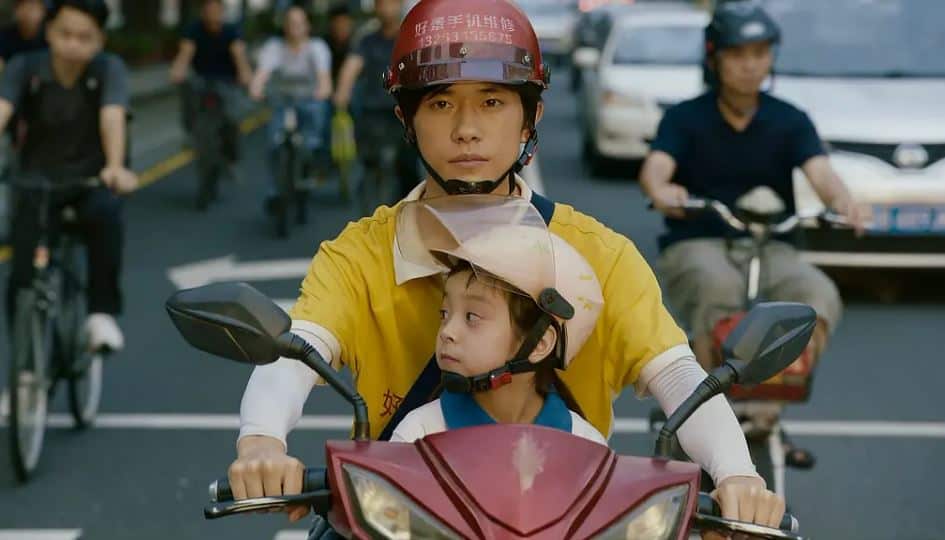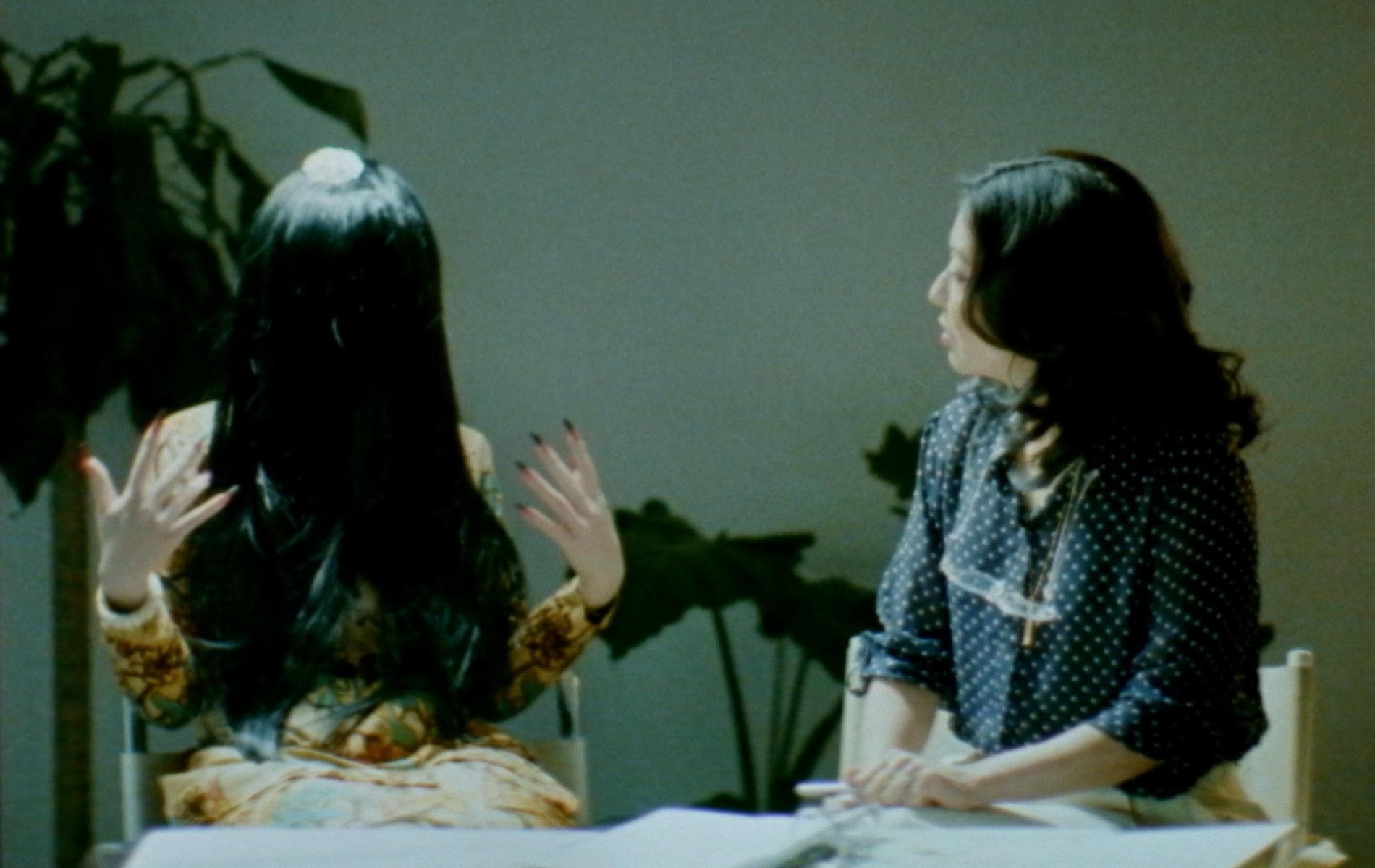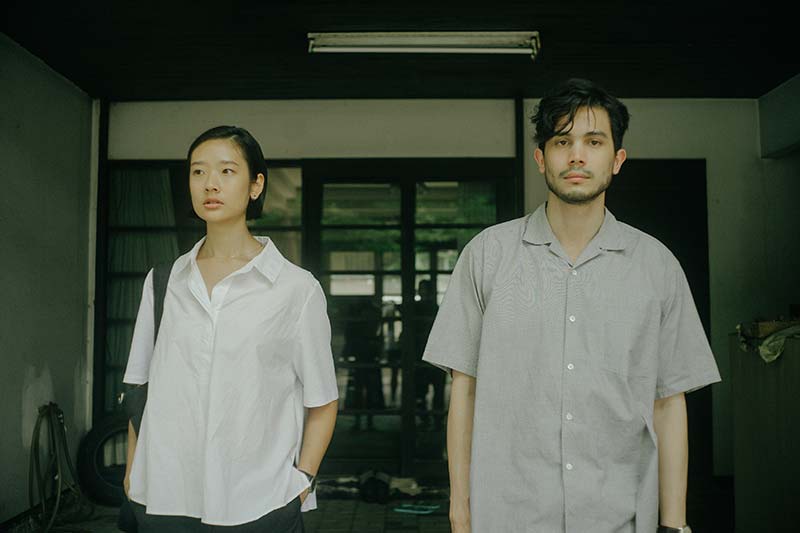An adaption of Feng Tang's semi-autobiographical best-seller “Everything Grows”, “Ever Since We Love” continues the successful recipe of having Yu Li on the helm and Fan Bingbing as the protagonist, although this time, the focus is on a male character, played here by K-pop sensation “Super Junior” ‘s former member Han Geng, while the story takes place in the 80s.
“Ever Since We Love” starts playing in virtual cinemas on 9/17, courtesy of Cheng Cheng Films
Qiu Shui is a 4th year medical student at China's top medical college, although, like most people his age including his classmates, the whole world feels a bit erotic. Somewhere between drinking, cracking jokes, and studying anatomy, he also retains a relationship with Lu Bai, a rather quirky, high-maintenance classmate, who seems to be genuinely in love with him. At the same time, he is tormented by the ghost of his first relationship with Xiaoman, who is about to marry a rich guy. Lastly, upon meeting the American boyfriend of his sister, he stumbles upon the older, sure of herself and rather stunning Liu Qinq, in a relationship that seems simply platonic in the beginning. Juggling three women, who seem to signify his past, his present, and his potential future respectively, along with medicine proves much more difficult than Qiu Shui anticipated, and when Lu Bai learns of his acquaintance with Liu Qinq, things take a turn for the worse.

The first thing the viewer will notice here, considering how the intro of the movie is set up, are the impressive visuals, where the intense colors are mixed with animation, impressive sets and locations, fast editing and rather fitting music, in a style that frequently functions as a music video. Apart from the intro and some violent scenes, where slow motion is also implemented quite well, the scenes that stand out in that regard are the erotic ones, which, despite being brief and according to Chinese censorship regulations, still manage to be both sensuous and visually impressive, with the one in the desert in particular, being the most memorable. In that regard, the combination of Zeng Jian's cinematography, Ze Yuan and Zeng Jian's editing, Howie B and Takeshi Kobayashi's music and the SFX emerges as one of the best aspects of the movie.

The portrait of Qiu Shui is also very interesting, with Li Yu focusing on the faults of her character, and particularly his immaturity and egoism, which is essentially what threatens his successful, to that point at least, life. In that fashion, as he considers the women around him as hookers for being with rich men, along with the way he proceeds with his relationship with Lu Bai, whom he takes for granted until she can take it no more, highlight these aspects of his persona in the best fashion, essentially justifying the road his life takes after a point. Han Geng is quite good in the part, particularly in the way he presents all his faults.
On the other hand, the writing for the rest of the characters is not so well done, with a number of them, and particularly Qiu Shui's classmates and his first love appearing simply as “tools” to progress the story, a fault that detracts from the impact of the narrative. Furthermore, the way the relationships with everyone around him progress is a bit illogical, with the movie focusing more on impression than substance in that part. What becomes obvious in that regard, is that Li Yu could do with a bit more filmic time in her hand, in order to explore her secondary characters further.
Regardless of this aspect, the female leads here still manage to shine. Qi Xi as Bai Lu is rather entertaining, particularly in her nervous breakdown moments, with her running scene being the funniest in the whole movie. Fan Bingbing is impressive as always as Qing Liu, particularly in the way she changes from a kind of femme fatale to a vulnerable, sensitive woman, in a role that is a bit more sensuous than her previous cooperations with Li Yu, an approach she seems to thrive in.
Lastly, Li Yu also makes some comments regarding the concepts of life and death, the difficulties of becoming a doctor, particularly in the way they have their patients' lives in their hands, and the concept of being rich at the time (which seems to be valued by how many Mercedes one has). Most of them however are subtly presented, with the focus being on Shui Qiu and the romantic aspect of the movie.
“Ever Since We Love” has its faults, but the visual presentation, the overall entertainment it offers, and Fan Bingbing and Qi Xi's acting definitely compensate, resulting in a movie that is rather pleasant to watch.















